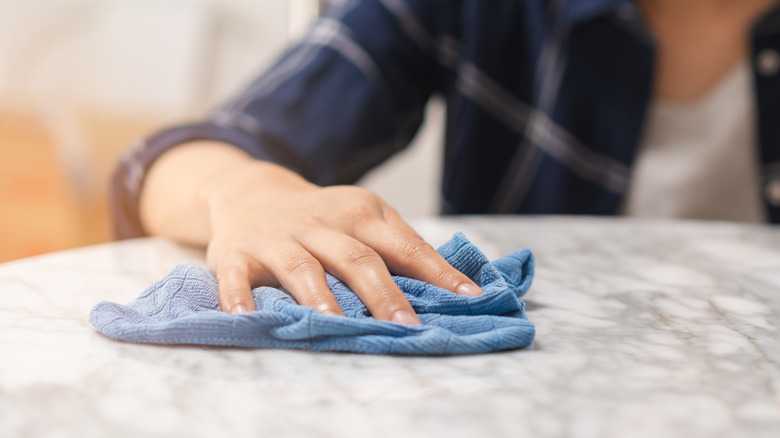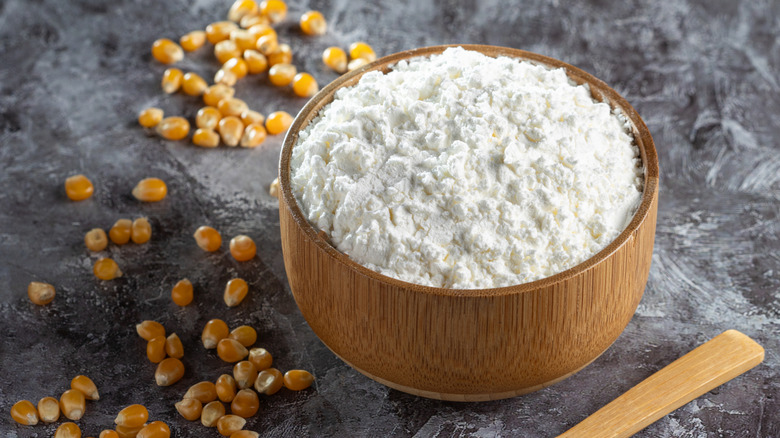This Common Pantry Ingredient Removes Marble Stains In A Pinch
Marble may look beautiful on kitchen and bathroom counters, with swirls of white freckled with unique grey whorls, but, man, is it hard to keep it clean. That red wine stain from last weekend? Yeah, it's still there. Spilled a bottle of foundation in the bathroom? Noticeable even all these weeks later. Marble is both a blessing and a curse, but luckily, if you spill an oil-based ingredient onto those countertops, you can prevent a stain with on simple ingredient you likely already have in your pantry: cornstarch.
It's important to apply the cornstarch almost immediately after making a spill to prevent a permanent stain. Blot (don't wipe) away as much of the spill as you can with a clean cloth, then grab the cornstarch and sprinkle a generous amount over the stain. After letting it sit for about 15 minutes, wipe away the cornstarch with another clean cloth. The stain should be mostly removed, and if not, try again. If you're dealing with an older oil stain, mix cornstarch with water to form a paste, then spread the paste over the stain and allow it to sit for a few hours. It may not entirely remove the stain, but it should help to lift at least some of the discoloration.
Cornstarch tackles marble stains like nobody's business
This common pantry ingredient, ideal for soft chocolate chip cookies and thickening sauces, is the superhero of home cleanliness. Cornstarch is surprisingly useful for deodorizing furniture and carpeting, polishing stainless steel, and removing oil stains from a variety of surfaces. Since marble is inherently porous, it'll absorb all kinds of stains, especially oil. Cornstarch is the perfect degreaser thanks to its absorbent nature, which allows it to easily attach to the pesky oils staining your countertops. Bye-bye ugly peanut butter stain!
Cornstarch is most effective on new stains, but older oil stains aren't necessarily off the table (literally). By wetting the stain, or adding water to cornstarch to form a paste, the water will sink into the porous marble and penetrate the old stain. When the water mixes with the stain, it will slowly evaporate and drag the stain to the surface, where it'll eventually be absorbed by the cornstarch. You can repeat the process a few times, hopefully drawing more and more of the stain away as the water and cornstarch mix works its magic. With a little patience and a box of cornstarch, those marble countertops can stay as squeaky clean and blemish-free as ever.

